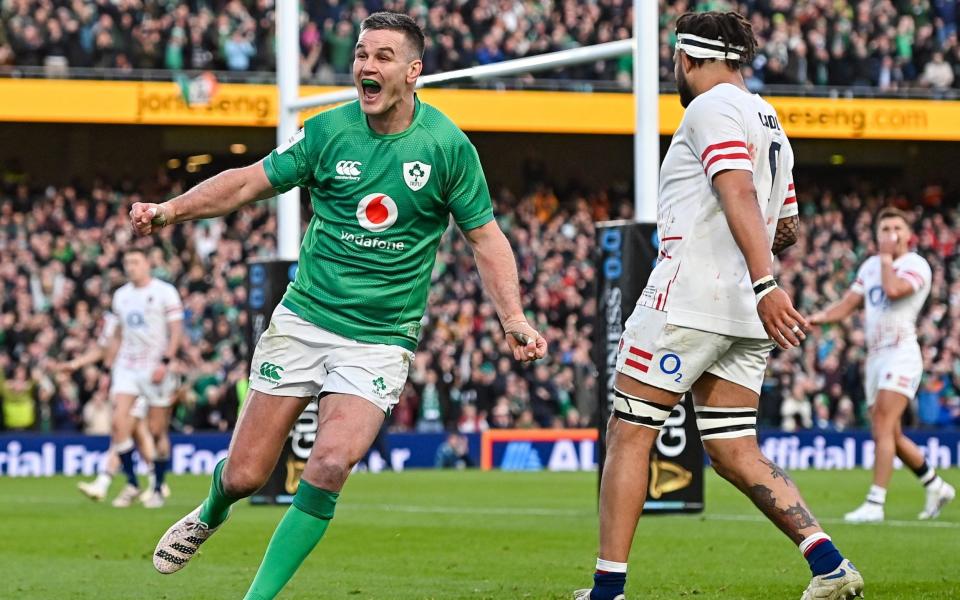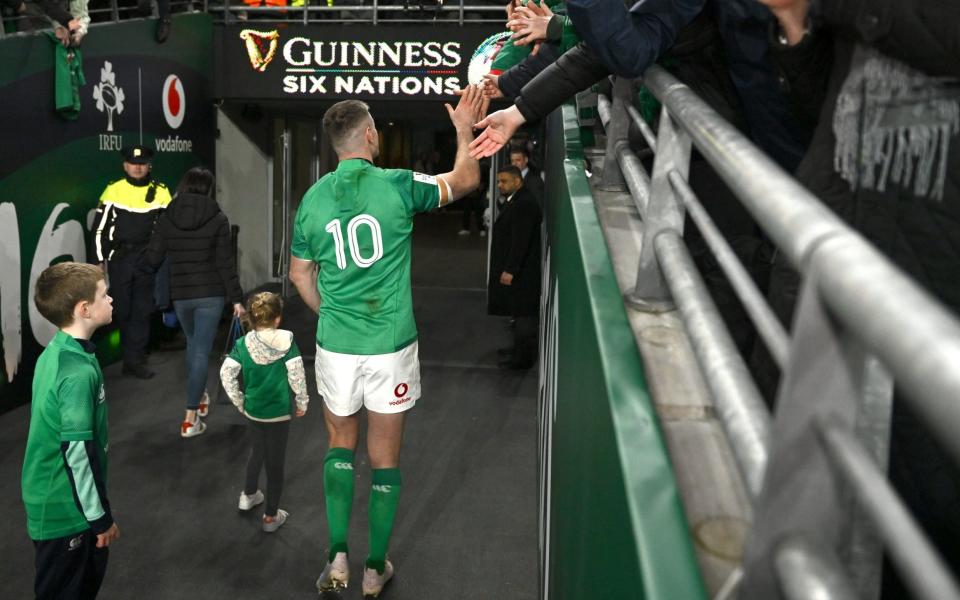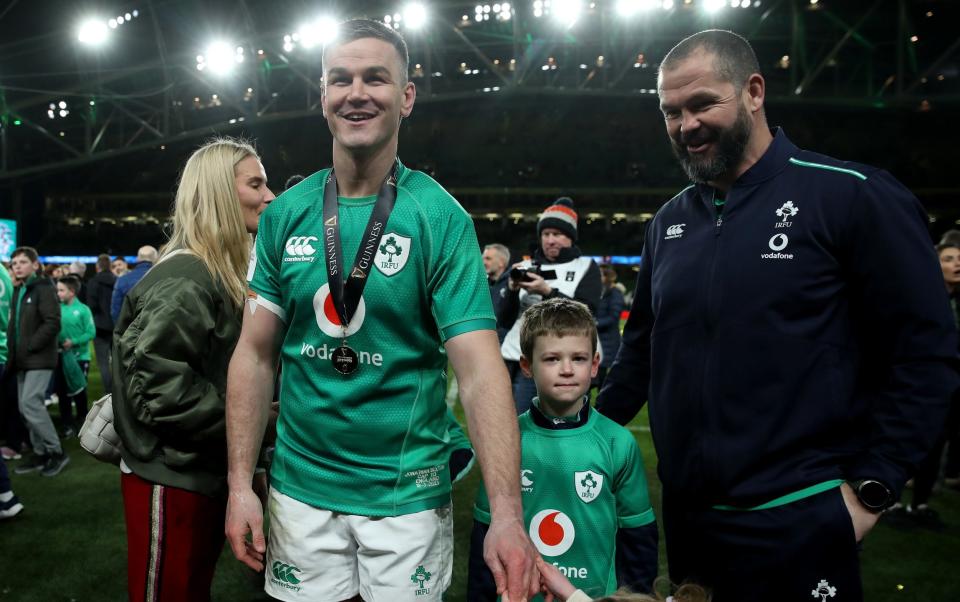Johnny Sexton is Ireland's greatest player of the Six Nations era

Comparing players across eras is fraught with peril, particularly given rugby union has changed radically over the decades. You have to consider context, not least the peers that these individuals are blessed – or cursed – to have had during their careers in what is among the most team-orientated of sports.
Andy Farrell and Jamie Heaslip are brave souls, though, and both anointed Johnny Sexton as Ireland’s greatest ever player in the green afterglow of a Grand Slam at the Aviva Stadium on Saturday.
Such claims should not be made lightly and there is no shortage of contenders. Jack Kyle, Syd Millar, Willie John McBride, Mike Gibson, Fergus Slattery, Keith Wood, Ronan O’Gara, Brian O’Driscoll and Paul O’Connell are the names that come to mind as the starting point for a shortlist depending on one’s prejudices.
Farrell is a charismatic and gifted orator and made his case in predictably convincing fashion. He revealed that Sexton, the Ireland skipper, had used the build-up to tell his charges that they had a dream opportunity.
“It’s unbelievably fitting that, in my opinion, the best player ever to play for Ireland is able to sign off on a Grand Slam, on St Patrick’s weekend, in front of his own crowd,” Farrell declared.
“There are a lot of stars that have aligned over the course of the last eight weeks and come together this evening.”

Even as Ireland jittered under pressure from a dogged and determined England, this palpable sense of destiny never really subsided. Fittingly, Sexton was involved in a subtle, cerebral moment that helped to steady the hosts at a vital time.
On the hour mark, Ryan Baird’s breakdown turnover had just inspired a deafening roar from a tense home crowd. Ireland popped the penalty into touch. Meanwhile, Steve Borthwick replaced Henry Arundell with Joe Marchant on the wing. At the end of a spell in which England appeared to be troubling their opponents, Sexton scented a chance to shift momentum.
On the back of a rumbling maul, he gathered a pass from Jamison Gibson-Park and, with Ben Curry closing down tenaciously, steered a cross-kick over the head of Marcant for Mack Hansen to chase.
Freddie Steward’s red card had meant that England were light on back-field coverage for the entirety of the second half. Anthony Watson had further to run to swing behind Marchant and alleviate any danger, yet could not arrive before Sexton’s well-weighted strike caused the ball to bounce. Twice.
Watson readjusted to gather and prevent an immediate try but was only prolonging the inevitable. Hansen, Jimmy O’Brien and Robbie Henshaw arrived, driving him into the dead-ball area. Ireland had a five-metre scrum. Sexton rose from the turf, having wiped Curry off himself, and clenched both fists. He knew that his kick could allow Ireland to finally dispose of England.
In a sign of his side’s expansion as an attacking force, to become an outfit no longer as reliant on their fly-half, Sexton did not touch the ball in the three phases it took for Henshaw to score. Bundee Aki was the primary playmaker, carrying directly from the scrum before rising to deliver a deft pass. Sexton did have a crucial conversion to give Ireland eight points of breathing space. He nailed it, as he had done at a similar juncture at Murrayfield the previous week, and then landed an even more difficult one to reward Dan Sheehan’s second try.
After that continuation, Sexton afforded himself a spontaneous jig. Farrell noticed, and relished telling the post-match press conference how much Sexton had made him cringe in the coaches’ box.
In the same conference, Sexton was evidently struggling to make sense of it all. He could, or would not definitively say whether this was indeed his final Six Nations appearance. For all the fanfare, he – more than anyone else including Farrell – epitomises Ireland’s burning desire to progress past a World Cup quarter-final later this year.

To make the ‘greatest ever’ debate more palatable, we should restrict the qualification period to the Six Nations era. Sexton, now the top points-scorer since 2000 having overtaken O’Gara this weekend, probably has two major competitors in O’Driscoll and O’Connell. Both are totemic for different reasons and were main-stays of the 2009 Slam.
Sexton has been at the tiller for two clean-sweeps since then. He is surrounded by quality on and off the pitch, and actually made sure to salute the importance of O’Connell – among other backroom figures – as an exacting forwards coach and a lieutenant to Farrell.
Even so, Sexton will be remembered as the man with the greatest on-field influence on Ireland’s greatest ever team; which this must be by now after a series win in New Zealand, the number one world ranking and this dominant Slam.
With that in mind, Sexton should be recognised as Ireland’s best of the last two decades at least. And even with so much behind him, he is not satisfied; which is precisely how he made it here.

 Yahoo Sport
Yahoo Sport 





































